Tinned food is a key tool in tackling the cost of living and climate crisis
New nationwide survey reveals the nation's misconceptions about tinned food could be driving them to spend money on food that ultimately goes to waste
New research reveals that 55% of people living in Scotland admit to having concerns about canned cuisine, with nearly a quarter dubbing it as a 'last resort'. Zero Waste Scotland is now urging consumers to take a fresh look at tins in a bid to tackle the twin crises of cost of living and climate change.
The new data shows nearly a quarter (21%) of the population consider tinned food 'a last resort', while a third (33%) still associate tins as the preserve of elderly people and students.
But with food prices rising and the cost of living continuing to bite, Zero Waste Scotland is encouraging shoppers to take a fresh look at tins for their budget-friendly and environmental benefits.
'Shelf-stable' - meaning households have much longer to use it up - and with options that are packed full of nutrients, tinned food presents one of the safest bests for consumers' cash.
All 32 Scottish local authorities collect cans from the kerbside, making them easy to recycle at home. They're also infinitely recyclable, meaning they can be made into other tins again and again.
Iain Gulland, Chief Executive of Zero Waste Scotland, said:
"Staggeringly, UK households waste the equivalent of eight meals a week because food is stored incorrectly or not used in time¹. But with the price of food going up it makes even more sense to waste as little as possible.
"Tins are a staple in any kitchen cupboard, but it's easy to overlook their ability to help us tackle the amount of food we waste. They're convenient and can be easily recycled at home. That makes them a win-win for both cutting food waste and avoiding sending unnecessary packaging to landfill.
"Tinned food can help even those of us with the busiest schedules make the most of the food we love, creating 'tin-spired' recipes with quality ingredients that are there when we need them."
Notes For Editors
¹ Source: Food surplus and waste in the UK - key facts. WRAP, updated October 2021.
Zero Waste Scotland is calling on everyone in Scotland to share their own 'tin'-spiration using the hashtag #CANpaign
More information about the CAN-paign can be found on the How to Waste Less website while a host of free resources - from recipes and social media assets and advice on how to recycle tins - are available on our Zero Waste Partners website.
All figures, unless otherwise stated, are from YouGov Plc. Total sample size was 1,000 adults. Fieldwork was undertaken between 16th and 20th February 2023. The survey was carried out online. The figures have been weighted and are representative of all Scotland adults aged 18+.
Those surveyed were asked:
Which, if any, of the following prevent you from eating more tinned food?
- It feels like a last resort (21%)
- It's less healthy than other food (20%)
- It's difficult to make meals from it (16%)
- It's more expensive than other foods (6%)
- It's bad for the environment (4%)
- Other (5%)
- Don't know (5%)
- Not applicable (45%)
Which ONE, if any, of the following types of shoppers do you MOST commonly associate with buying and eating tinned food regularly?
- Students (19%)
- Elderly people (14%)
- Those with an unhealthy diet (15%)
- People who are money savvy (15%)
- People who have a young family (6%)
- Foodies and/or home cooks (2%)
- People who follow an unhealthy diet (2%)
- Those who are environmentally conscious (1%)
- Other (7%)
- Don't know (23%)
Why is food waste bad for the environment?
Wasting food is one of the worst things we can do in terms of climate change. Food waste contributes more to Scotland's waste carbon impacts than almost any other waste type, accounting for more than a quarter (30%) of Scotland's household waste carbon footprint. What's more, 70% of Scotland's food waste comes from households. (Source: Zero Waste Scotland carbon metric, 2021)
Tins are a key tool to help us tackle food waste at home as they have a long shelf-life and there's no need to refrigerate unopened tinned food.
Additional information: recycling tins
Zero Waste Scotland's Recycling Sorter tool can help everyone in Scotland recycle effectively at home, with searchable information on what can be recycled in which colour of bin for every council area in Scotland.
Food tins are usually made from steel, which is 100% recyclable and can be reprocessed again and again. It's therefore really important we recycle them rather than throw them away.
Food tins, including pet food tins and larger food tins such as those containing sweets and biscuits, are accepted in household (kerbside) recycling in all 32 local authority areas in Scotland. They are also accepted at household waste recycling centres.
To recycle food tins effectively: remove the lid completely, empty the contents and then give it a quick rinse. The edges can be sharp so carefully place the lid into the bottom of the tin, then squash it so the lid does not fall out (this will also save space in your recycling bin). Leave the labels on unless your council has advised otherwise.
For more information about recycling food tins visit the How to Waste Less website.
